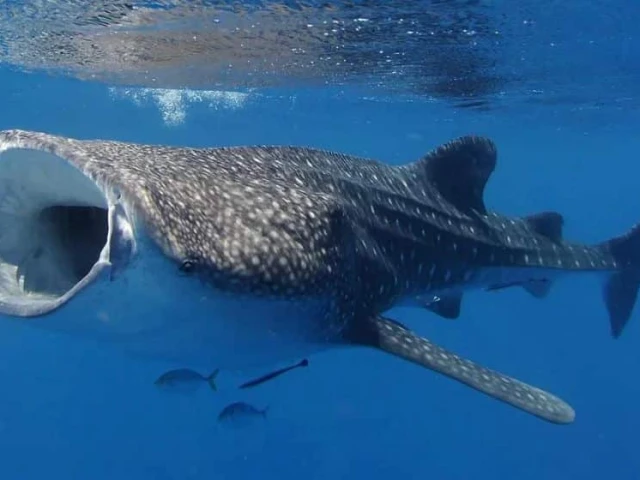Initiative aims to protect endangered shark species and promote sustainable marine practices
The federal government has announced plans to launch a comprehensive national action plan to conserve shark species in Pakistan’s coastal waters. Federal Minister for Maritime Affairs Muhammad Junaid Anwar Chaudhry said the plan was prepared in collaboration with Sindh and Balochistan provinces, alongside marine and environmental experts, to address the growing threat of overexploitation of sharks in the Arabian Sea.
The minister highlighted that the continued capture of banned shark species, including requiem, hammerhead, thresher, mackerel and whale sharks, poses a serious threat to marine biodiversity. He warned that such practices also undermine Pakistan’s international commitments to marine conservation. Among the most threatened species is the basking shark, classified as endangered by the International Union for Conservation of Nature (IUCN). Due to its slow growth, low reproduction rate and frequent entanglements in fishing nets, the species faces a high risk of extinction if immediate protection measures are not implemented.
The National Action Plan is aligned with the International Shark Action Plan developed by the Food and Agriculture Organization (FAO). This global framework urges all countries to create policies that ensure sustainable shark management, reduce fishing waste, and strengthen conservation initiatives. According to the minister, Pakistan’s approach will focus not only on protecting species, but also maintaining the country’s seafood trade and global reputation through responsible fishing practices.
Read: Giant algae on the ocean surface is poisoning Karachi’s fish
The Ministry of Maritime Affairs plans to involve provincial fisheries departments, coastal authorities and local communities in the consultation process. Comments will be collected to review existing standard operating procedures and enforcement mechanisms regarding prohibited shark species. Authorities will also review the effectiveness of monitoring systems, awareness programs and training sessions designed for fishermen and other stakeholders.
Minister Junaid Anwar Chaudhry stressed the need to strengthen data collection on shark bycatch and landings, while promoting transparency and coordination with international conservation agencies. He emphasized that sustainable marine management depends on strong collaboration between the federal and provincial levels, combined with consistent public awareness campaigns.
“Protecting marine biodiversity is essential for the long-term health of our oceans and for the livelihoods of the communities that depend on them,” he said.
This initiative represents a major step in ensuring that Pakistan contributes effectively to global efforts to conserve endangered marine species and promote sustainable fisheries in the Arabian Sea.




